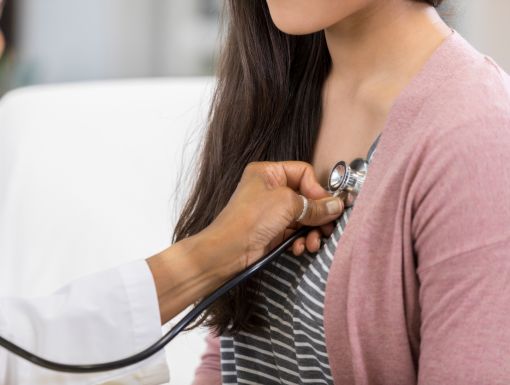
How Does Caffeine Affect Your Heart?
Like many of us, you may participate in the morning ritual of having a cup of coffee or tea to begin your day. The morning ritual of caffeine consumption may not be enough to keep you going throughout the day, so you may indulge in more caffeine to give yourself an extra boost of energy. But when we think of caffeine, we often overlook its effects on our bodies, including our hearts.
Caffeine is extremely popular among Americans. According to the U.S. Food and Drug Administration (FDA), about 80% of adults consume caffeine every day, drinking one cup or 8 ounces (135 milligrams) daily.
Caffeine is a stimulant and commonly found in:
- Coffee: an 8-ounce cup of coffee has 80 to 100 milligrams of caffeine.
- Tea: an 8-ounce cup of black or green tea contains 30-50 milligrams of caffeine
- Soft drinks: a 12-ounce caffeinated soft drink contains 30 to 40 milligrams of caffeine.
- Energy drinks: an 8-ounce caffeinated energy drink has 40-250 milligrams of caffeine.
Chocolate, nuts, loaded teas, cocoa and some medications contain caffeine also.
You may have heard the phrase “everything in moderation.” This phrase can be directly applied to caffeine. In small or moderate amounts, caffeine isn’t harmful. The FDA says four or five cups (400 milligrams) of coffee a day isn’t linked to negative effects or harmful. People sensitive to caffeine or people who have too much caffeine may experience side effects. But effects are dependent on the person’s sensitivity and how fast their body breaks down caffeine. Caffeine consumption affects everyone differently.
5 common side effects of too much caffeine include:
- Anxiety – More than 1,000 milligrams of caffeine a day is known to cause nervousness and anxiety. When consuming caffeine, the effects of the chemical in our brain that make us feel tired is blocked. At the same time, the fight-or-flight hormone known as adrenaline is released, causing our energy to increase, leading to anxiety. It is best to keep caffeine intake low to moderate doses to avoid experiencing anxiety.
- Insomnia - Did you know it takes about five hours for caffeine to leave your system? To avoid having trouble sleeping, be mindful of when consuming caffeine late in the afternoon. Too much caffeine can keep you from getting a good night’s rest by sleeping less and taking a longer length of time to fall asleep.
- Digestive Issues – Caffeine is known to cause bowel movements by releasing gastrin, a hormone that increases the activity in the colon. Too much caffeine can cause diarrhea. Chronic acid reflex can also be irritated by caffeine.
- Addiction – Consumption of caffeine can be habit forming leading to psychological and physical dependency. Caffeine dependency tends to correlate with the frequency of consumption.
- Fatigue – By consuming caffeine, you may feel fatigued hours after consumption when caffeine leaves your system.
Effects of caffeine on the heart
Commonly, when we think of caffeine, we may immediately think about its effects on our heart. Contrary to popular belief, low-to-moderate consumption of caffeine does not increase the risk of stroke or heart disease in most people.
But too much caffeine can affect your heart rate and blood pressure, which, if high, puts you at risk for heart attack and stroke. Due to caffeine’s stimulatory effects on the nervous system, high caffeine consumption can lead to high blood pressure. High blood pressure caused by caffeine is temporary but can damage arteries over time, restricting blood flow to the heart and brain. Large doses of caffeine can also cause your heart to beat faster. The stimulatory effects can cause atrial fibrillation commonly known as altered heartbeat rhythm.
It’s important to remember caffeine isn’t just found in coffee and tea. Be conscious of decaffeinated products. This may come as surprise to most people. Caffeine is in decaffeinated products. Decaf coffee has about 2-15 milligrams of caffeine in an 8-ounce cup.
To avoid side effects, it is best to drink caffeine in moderation and be mindful of your daily consumption. Caffeine in moderation may have positive effects. According to American Heart Association, drinking non-decaffeinated coffee in moderation, one or more cups a day, may reduce your risk of heart failure.
If you are experiencing negative side effects, consult with your physician.
Schedule an appointment and learn more about Dr. Achal Sahai.


